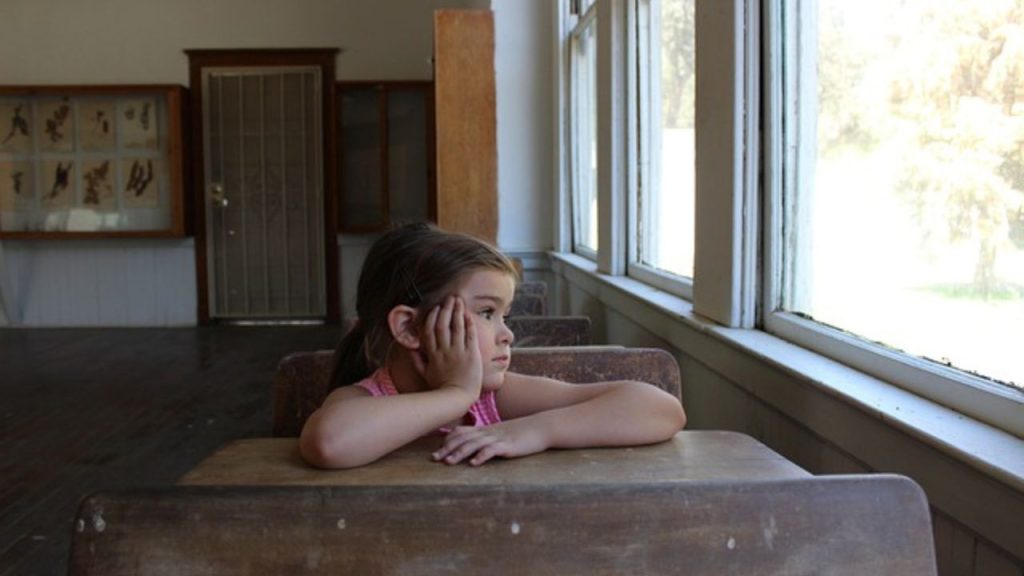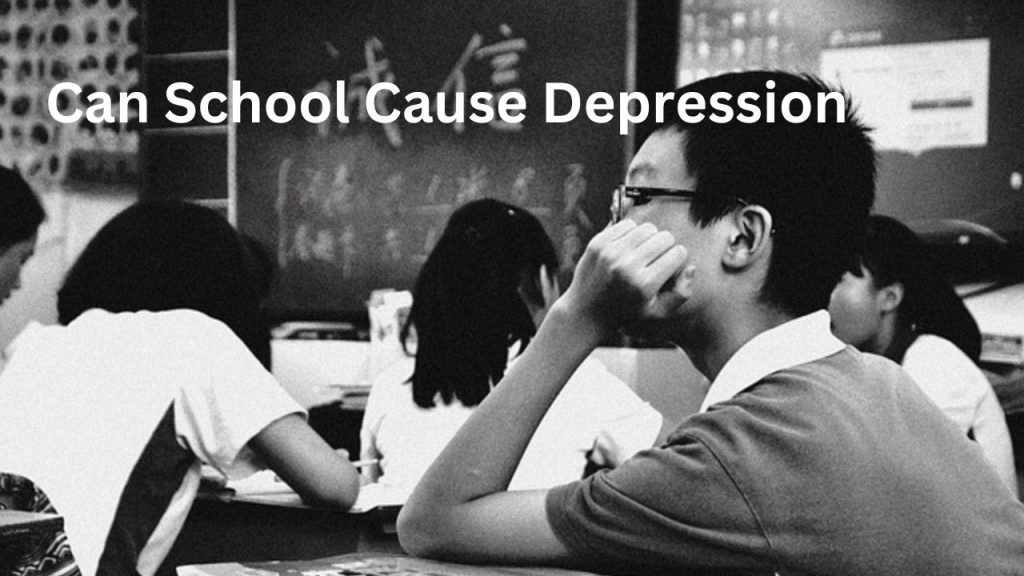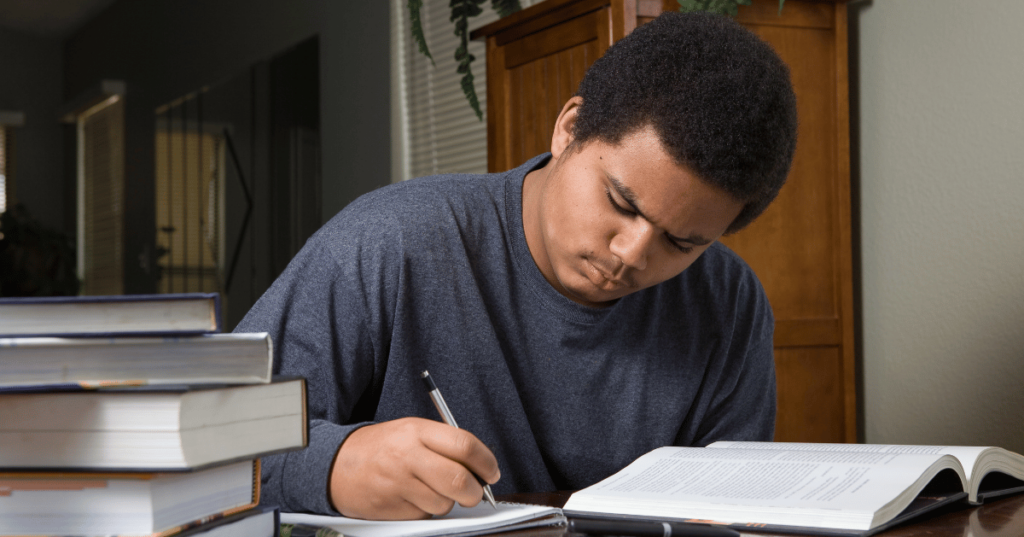Discover 7 powerful facts about can school cause depression. Learn about academic pressure, mental health challenges, and ways to support students effectively.
Can School Cause Depression?
School has been regarded as the institution where children learn and are better prepared for the future. Yet, to some people, school is a main stress factor, anxiety source, and can even cause depression. It is not that education itself is bad, but pressures of performing well, pressure from peers, and external engagements can cause a heavy blow on mental health.
The Link Between School and Depression

Depression among students has been the major public health concern. The World Health Organization says that depression is ranked among the leading causes of disability for adolescents aged 10–19 years. In as much as schools were intended to be learning environments, it can inadvertently contribute to the problem.
A study conducted in *The Journal of Adolescent Health* revealed that those students who felt overwhelmed by the pressure from academics were at a greater risk of experiencing depression symptoms. These symptoms included persisting sad mood, loss of interest in activities they once found pleasure in, and persistent difficulty concentrating.
What Makes School a Stressful Environment?
1. Academic Pressure
Students are expected to perform well in many subjects, score high grades, and be the best. This creates pressure on many, making them fear failure and causing them stress and burnout. A study by the American Psychological Association (APA) showed that 83% of teens in the U.S. reported school as their number one source of stress.
2. Social Challenges
Perhaps navigating friendships, fitting in, and avoiding bullying is where significant struggles lie for most of these students. A recent *The National Center for Educational Statistics* report indicated that the figure of one in every five U.S. students bullied a child, which was correlated to feelings of isolation or depression.
3. Extracurricular Overload
Academically balanced with sports, music, volunteering, or other pursuits, most students have hardly anytime left for resting. When it combines this with sleep deficiency, that would further affect their psychological state in a significant manner.
Role of Schools in Mental Health

It is not just the academic workload that causes depression but the culture surrounding education. Many schools focus more on performance than on well-being, leaving students feeling unsupported.
Sixty-four percent of kids, according to a *National Alliance on Mental Illness (NAMI)* poll, felt that their schools did not help them. Counselors are present at many schools, however there are usually too few counselors for each student. For example, a counselor to student ratio of 1 to 250 is advised by the American School Counselor Association. In many schools, the ratio is substantially worse, like 1 to 400 or higher.
School Timings and Sleep Deprivation
Some studies have revealed a relationship between sleeping deprivation among adolescents with earlier school start times. These sleep deprived teens are said to go into depression. The CDC reports, “Teenagers need between 8-10 hours of sleep per night” but only 25 percent of high school students could meet this. A deprived lack of sleep does indeed mess up mood and concentration to overall mental well-being.
Case Study: Depression in the High Achievers
To establish the effects of school-induced depression, let’s explore the case of high achievers. Stanford University conducted a research study on students in affluent neighborhoods with high expectations for students’ academic performance. The alarming results were: In total, 56% of all students experienced chronic stress 36% exhibited symptoms of depression.
– Most of the students explained that the most important cause of their depression was the academic pressure and competition. One respondent mentioned, “I feel like my worth is tied to my grades. If I don’t do well, I feel like a failure.” Such thinking can cause more permanent damage due to a highly competitive school environment.
Indicators of Student Depression
Early treatments for depression in students depends on identifying its symptoms. Typical warning indicators include the following: enduring melancholy or agitation. withdraws from hobbies or friends. not paying attention or finishing tasks. alterations in sleep habits, such as excessive sleeping or insomnia. frequent medical issues, such stomachaches or headaches.
Peers, parents, and teachers are crucial in recognizing these symptoms and motivating adolescents to get assistance.
How Schools Can Help

While schools can be a source of stress, they also have the potential to support students’ mental health. Here’s how schools can make a positive impact:
1. Implement Mental Health Education
Mental health awareness incorporated into the curriculum will enable students to understand and control their emotions. Coping skills, stress management, and self-care are important things that can empower students to be in charge of their mental health.
2. Increase Access to Counselors
Schools should invest more in counselors for the psychological support of pupils and ensure that enough counselors are placed in learning institutions. Train counselors to handle these new problems better than past generations.
3. homework load
There are far too many homeworks and homework loads. The *OECD* conducted a study showing that students who spent over 4 hours a week doing homework were more prone to experiencing anxiety. Schools could adapt homework policies to instead favor quality over quantity.
4. Communicate Openly
Creating a school culture where students feel comfortable discussing their struggles can make a big difference. Teachers and staff should actively listen to students and provide a safe space for them to share their concerns.
5. Adjust Start Times
Several studies, for example, in the *Journal of Clinical Sleep Medicine*, show that starting school in the morning helps improve students’ mental health and academic performance. In other words, keeping the school schedule in line with teens’ natural sleep schedules helps prevent sleep deprivation.
What Can Parents Do?
Parents also play a great role in supporting their children’s mental health. Here are some practical tips:
– Communicate Regularly: Talk to your child about their school experiences and encourage them to share their feelings. Monitor Their Workload: Help your child prioritize tasks and set realistic goals. Advocate for Change: If you notice systemic issues at your child’s school, speak up. Join parent-teacher associations or advocate for better mental health resources.
The Way Forward
School shouldn’t feel like a burden. It should be a place where students are inspired to learn, grow, and thrive. While depression is a complex issue with many contributing factors, there’s no denying that school environments play a role.
By alleviating academic pressure, enhancing the availability of mental health services, and encouraging open communication, schools can become a supportive place for all students. Parents, educators, and policymakers must join forces to make mental health a priority and ensure a future where education empowers students without compromising their well-being.
If you or someone you know is struggling with depression, don’t hesitate to seek help. Reach out to a trusted teacher, counsellor, or mental health professional. You’re not alone, and support is available.




